Jul 9, 2024 11:35 AM
Trumpeter, Educator Jim Rotondi Dies at 61
Jim Rotondi, a renowned hard-bop trumpeter, composer and educator, died suddenly on July 7 at a hospital in France. He…
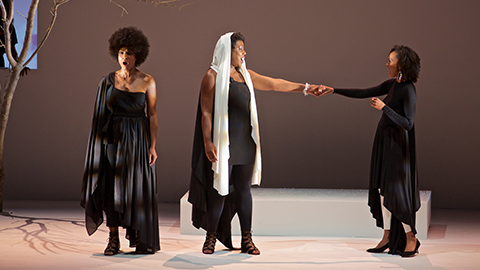
A publicity photo for Carrie Mae Weems’ multimedia production Grace Notes: Reflections of Now
(Photo: Courtesy of Kennedy Center)Grace Notes: Reflections of Now—Carrie Mae Weems’ sobering multimedia production centering on the tense race relations in the United States—made its debut in Washington, D.C., on Oct. 20 at the Kennedy Center. Weems’ ambitious work incorporated stately orchestral music penned by jazz renegades Craig Harris and James Newton and new music composer Edward Ruchalski.
The work marked new territory for Weems, a 2013 MacArthur Fellow best known for photography and video installations. Her keen visual aesthetic fueled the program, as she projected video portraits of various, unnamed black people—revealing their joy, humanity and vulnerability.
The presentation also depicted an exhaustive history of worldwide violence that included images of the 1945 bombing of Hiroshima, and more recently, split images of Black Lives Matter protests alongside images of the white nationalist rally in August in Charlottesville, Virginia.
The dense work referenced former President Barack Obama singing the hymn “Amazing Grace” during his eulogy for Rev. Clementa Pinckney, one of the nine victims gunned down by Dylann Roof in July 2015 at the Emanuel AME Church in Charleston, South Carolina. Indeed, Obama’s gesture anchored the plot, which also nodded to the tale in Greek mythology of Antigone’s request to bury her brother Polynices.
Grace Notes expanded its remembrance to other fallen African-Americans, many of whom were unarmed victims killed by the police.
What could have resulted in a convoluted, overwrought mess in lesser hands unfolded into an exquisite performance-art mediation. The work posed probing, self-reflective questions concerning how one measures a life—and the worthiness of someone else’s life.
Weems examined the true nature of grace, too, approaching it from various angles, as a noun, verb, adjective and adverb. The work eventually zeroed in on the very act of grace amidst seemingly inescapable despair—and, pointedly, amidst the resurgence of white nationalism in 2017.
Weems brilliantly articulated perspectives, fears and struggles that are often difficult to convey because of emotional and psychological fatigue and suppression, combined with prolonged systemic racism.
These themes were reinforced by Matt Saunder’s sparse set design, which featured inset windows, a leafless tree branch and falling snow; brooding poetry from Carl Hancock Rux (“Democratic Vistas”) and Aja Monet (“Protesting)”; and additional directorial assistance from Tanya Selvaratnam.
Weems’ reflections were most poignant during her account of witnessing unarmed black men running from police officers, her depiction of the love and fear of a mother for her unborn son, and her portrayal of a black man tirelessly carrying the piling weight of both racial micro- and macro-aggressions in the white-collar workforce.
Singers Alicia Moran Hall—wife of pianist Jason Moran, the Kennedy Center’s artistic director of jazz—Elisa Davis and Imani Uzuri also gave voice and emotional immediacy to Weems’ ruminations of black American life and death, particularly with a moving rendition of “Amazing Grace” that eschewed melodrama.
But it was Nona Hendryx’s piercing original “Grace Will Set You Free” that really brought the house down as a soul-stirring finale.
The all-male, ethnically diverse troupe Dem’ Raider Boyz Step Squad from Eleanor Roosevelt High School in Greenbelt, Maryland, delivered another high point in Grace Notes, thanks to its step-dance and oratory performance, which, like “Grace Will Set You Free,” gave the piece a glimmer of defiant optimism.
The production wasn’t flawless. It had a few jarring moments, particularly when Weems turned her attention to environmental issues, such as climate change. While it is true that hazardous environmental conditions have historically impacted poor black and brown communities in the U.S. at an alarming rate, Weems’ commentary on this issue came off almost like an afterthought.
Nevertheless, Grace Notes—which left the audience grappling with questions about why black life continues to be seemingly so disposable in the U.S., even after electing its first African-American president in 2008—is a triumphant work that sharply addresses a bleak and overextended chapter in our nation’s history.
Upcoming jazz events at the Kennedy Center include concerts by pianist Christian Sands (Nov. 18), the trio Harriet Tubman (Dec. 16) and singer Dee Dee Bridgewater (Dec. 31). For more info, visit the Kennedy Center website. DB
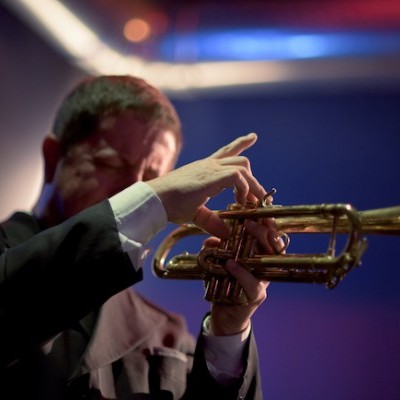
Jim Rotondi was acclaimed for his wide, round trumpet tone, remarkable virtuosity and assured swing.
Jul 9, 2024 11:35 AM
Jim Rotondi, a renowned hard-bop trumpeter, composer and educator, died suddenly on July 7 at a hospital in France. He…
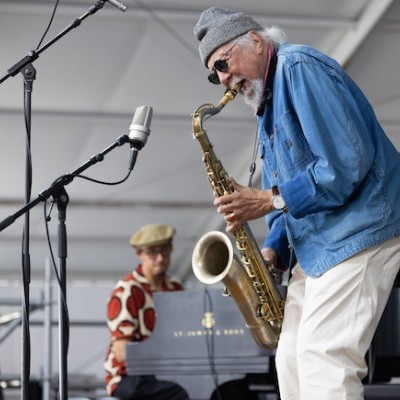
Charles Lloyd, seen here at the 2024 New Orleans Jazz & Heritage Festival, makes DownBeat Poll history!
Jul 11, 2024 12:23 PM
The incomparable Charles Lloyd swept the 72nd Annual DownBeat Critics Poll, becoming the first artist ever to earn…
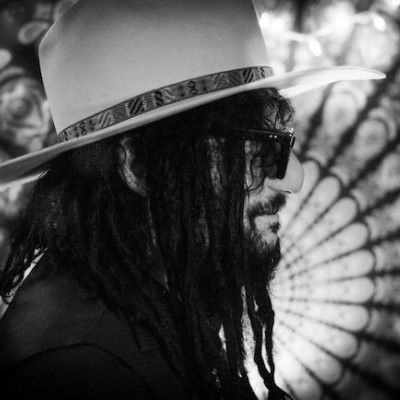
“Being president of Blue Note has been one of the coolest things that ever happened to me,” Was said. “It’s a gas to serve as one of the caretakers of that legacy.”
Jun 4, 2024 12:21 PM
Sitting with Don Was is a comfortable and unhurried exercise. He may seem slightly reserved at first, but ideas and…
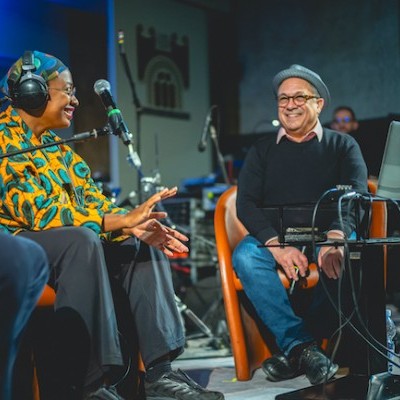
“She reminds me of my childhood and makes we want to cry,” Cécile McLorin Salvant, pictured here with writer Ashley Kahn, said of Dianne Reeves.
Jun 11, 2024 12:31 PM
Italy’s Umbria Jazz Winter is one of those rare annual festivals that not only coincides with a major holiday —…
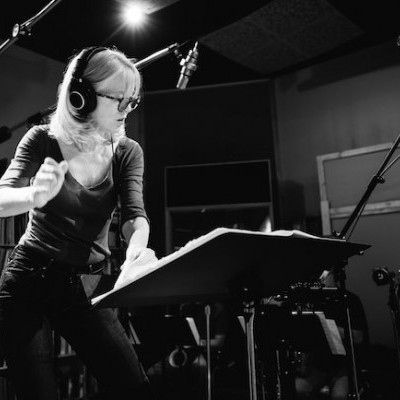
Maria Schneider said of Decades, her new compilation release: “I just wanted to create something, put it in a beautiful box and say, ‘Look at what we did.‘”
Jun 18, 2024 12:00 PM
Maria Schneider opened the sleek black box and placed it on a coffee table in her Manhattan apartment. Inside lay the…